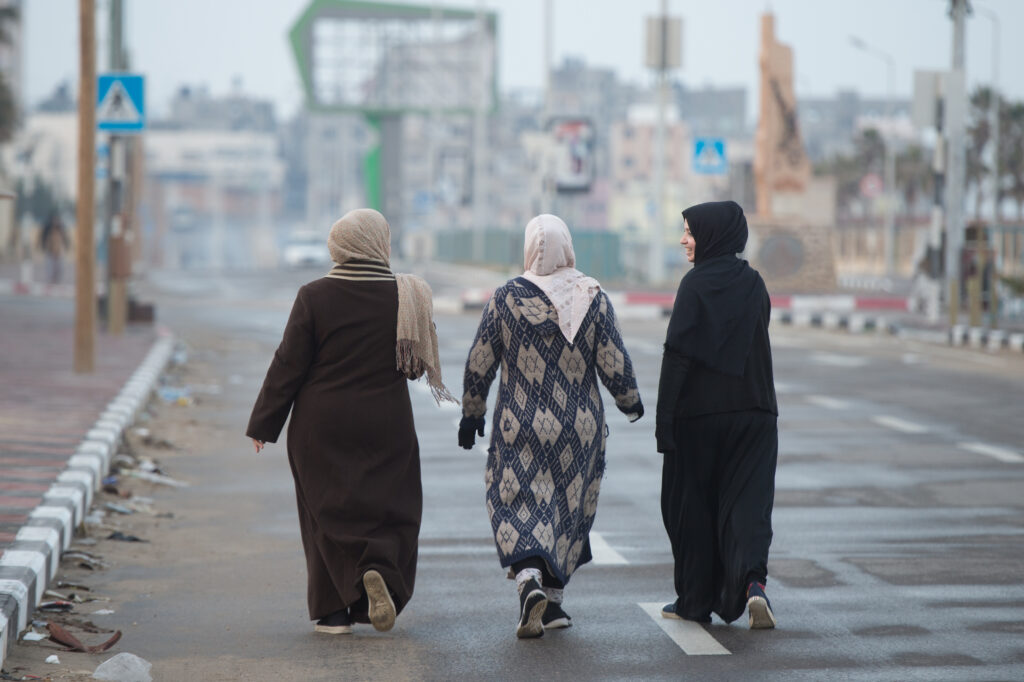News Team member Stephanie Oehler describes how the online "trad-wife" aesthetic fuels the flames of the anti-vaccination movement during the second-largest measles outbreak of the 21st century.
The Destruction of Health Care Facilities in Gaza Imposes Severe Risks on Pregnant Women
By Saanvi Nayar
The militant group Hamas attacked the state of Israel across the border of the Gaza Strip on October 7, 2023, and the conflict has only escalated since then. The United Nations (UN) General Assembly President Dennis Francis most recently called for an immediate ceasefire on March 4, 2024; the conflict has been called a “humanitarian crisis” by both the UN and the World Health Organization (WHO), with increasing concerns regarding human displacement and disrupted supply chains.
The effects of the bombardment are falling heavily on women, one of the most vulnerable groups in the region. Health care professionals and international organizations are particularly concerned for the impact on pregnant women, given the lack of availability of prenatal health care, surgical access for deliveries, and postnatal care.
Terrible Conditions for Expectant Mothers
More than 50,000 pregnant women were recorded in the region as of October 7. Since then, hospitals have been overwhelmed with victims and even bombed. According to The Wall Street Journal, women have given birth in “dirty, overcrowded shelters, public bathrooms or cold, makeshift tents,” exacerbating the trauma and risks for infection that already come with the birthing process.
“It is now estimated that forty percent of [pregnant women in Gaza] have high-risk pregnancies,” Dr. Deborah Harrington, a British obstetrician, told The New Yorker on February 14, 2024, expressing additional concern for malnutrition and traumatic injuries. She said she was in contact with an obstetrician in Gaza, whose small maternity hospital before the war had seen “ten births per day, and it’s now doing eighty, or sometimes even a hundred.” Dr. Harrington has annually visited Gaza to teach medical professionals in training and visited the region for two weeks in December 2023. (Harrington’s office did not respond to a request for an interview.)

The Role of Local Journalists and Nonprofits
Photojournalist Motaz Aziza, who reports for Al Jazeera among other platforms and has been covering the humanitarian crisis through videos and photography, has posted video showing pregnant women dying from blood loss after delivering in refugee camps. Aziza comments on the risk for children post-delivery, posting “More than 6,000 Palestinian children got killed in the last 43 days by the Israeli army” on November 20, 2023. In January, the publication The New Arab quoted a pediatrician with the international aid group Doctors Without Borders that fetuses in Gaza are “sentenced to death” by mothers’ stress, dehydration and lack of nutrition.
Journalists in Gaza remain vital outlets for consistent footage of pregnant womens’ experiences. Amplifying these efforts, nonprofits dedicated to maternal health in the region, such as the Safe Birth in Palestine Project, are finding it extremely difficult to reach pregnant women. Technology remains vital for communication, as Ferhan Gülo?lu, the co-founder of Safe Birth in Palestine, told The Guardian in February, adding that the organization has facilitated conversations between women and doctors on Whatsapp, supplied educational birthing videos in Arabic and helped with medical provisions. Many supply routes in the region are blocked, and Israeli and Egyptian authorities have prevented international journalists from accessing the region. Without local journalists covering daily life in the region and nonprofits coming up with creative alternatives to aid, it would be very difficult to have an accurate assessment of the true dangers pregnant women face.
Global Response and Local Initiatives
A ceasefire remains far from sight, and the situation within Gaza continues to be dire, as UNICEF’s Middle East and North Africa regional director Adele Khodr told New York Magazine in March. Communities worldwide question the best methods of supplying support and aid to the region. Asked about efforts within Emory University, “We’re training our professionals of the future,” said Dr. Dabney Evans, Director of the Emory University Rollins School of Public Health Center for Humanitarian Emergencies and the University’s Institute for Human Rights. “We are preparing people to be able to go into such settings and bring their technical and subject matter expertise to these humanitarian emergencies.”
Despite differing ideologies, basic access to healthcare and safety should be universal. “It’s not that health is apolitical because almost nothing is apolitical,” Evans said. “But we need to be able to think about our principles and our values, especially when we think about humanitarian emergencies, that can rise above.”
Pregnant women in Gaza are susceptible to lacking healthcare access, and in committing to individual education and activism, it is crucial to approach the crisis with empathy. This empathy manifests in educating oneself of developments, donating to efforts for aid and understanding how the health-related organizations and institutions around one are contributing to bettering this crisis. Being a global citizen requires a commitment to advocating for fundamental values, and healthcare deserves to be a universal one.

